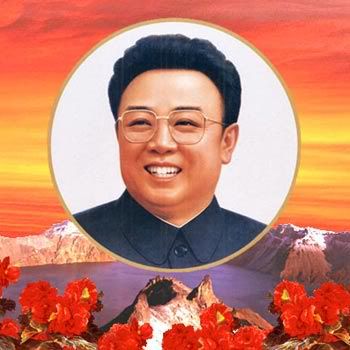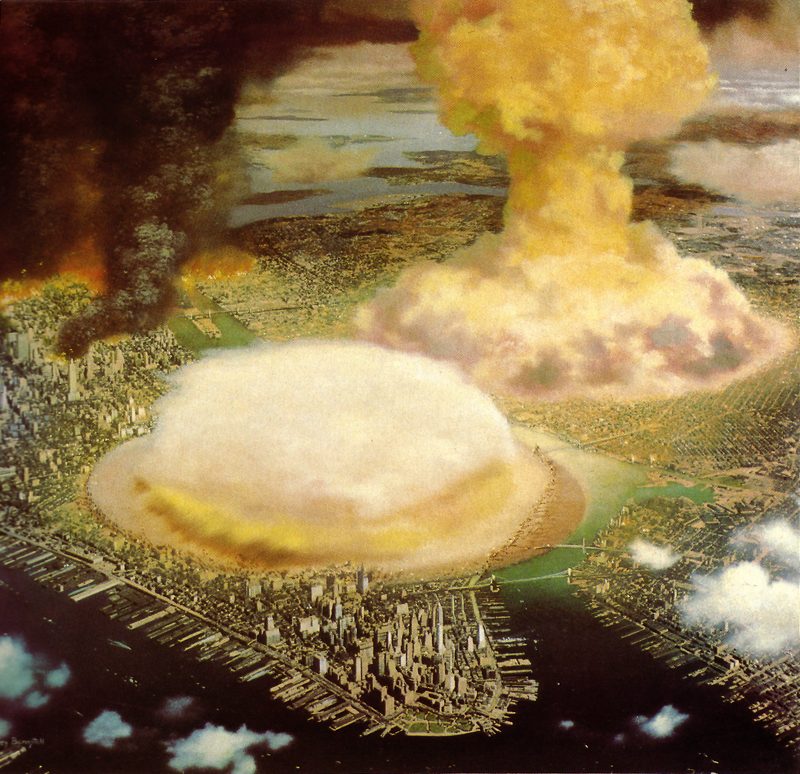
Images are from : http://markcronan.livejournal.com/


From HotAir:
Beware the cult of personality in all its forms.
From Wikipedia:
A cult of personality or personality cult arises when a country's leader uses mass media to create a heroic public image through unquestioning flattery and praise. Cults of personality are often found in dictatorships but can be found in some democracies as well.
A cult of personality is similar to general hero worship except that it is created specifically for political leaders. However, the term may be applied by analogy to refer to adulation of non-political leaders.
Background
Throughout history, monarchs were almost always held in enormous reverence. Through the principle of the divine right of kings, rulers were said to hold office by the will of God. Imperial China (see Mandate of Heaven), ancient Egypt, Japan, the Inca, the Aztecs, and the Roman Empire (see imperial cult) are especially noted for redefining monarchs as god-kings.
The resurgence of ancient Greek democratic ideas in Europe and North America in the 18th and 19th centuries made it increasingly difficult for monarchs to preserve this aura. However, the subsequent development of photography, sound recording, film and mass production, as well as public education and techniques used in commercial advertising, enabled political leaders to project a positive image like never before. It was with these circumstances in the 20th century that the best-known personality cults arose.
Purpose
Generally, personality cults are most common in regimes with totalitarian systems of government, that seek to radically alter or transform society according to revolutionary new ideas. Often, a single leader becomes associated with this revolutionary transformation, and he becomes treated as a benevolent "guide" for the nation, without whom the transformation to a better future cannot occur. This has been generally the justification for personality cults that arose in totalitarian societies of the 20th century, such as that of Adolf Hitler and Joseph Stalin.
Not all dictatorships foster personality cults, however, and some leaders may actively seek to minimize their own public adulation. For example in Cuba public images of Fidel Castro are rare, and a personality cult around Castro is not encouraged officially, although images, posters, and billboards of Che Guevara abound. Even in the totalitarian regime of Pol Pot in Cambodia the image of Pol Pot himself was rarely seen, though in the latter's case this was merely to perpetuate the image of a faceless, invisible, omnipresent state leadership.[citation needed]
Examples from totalitarian regimes
The criticism of personality cults often focuses on the regimes of Mussolini, Hitler, Stalin, Josip Broz Tito, Mao, Saddam Hussein, Kim Il-sung and his son Kim Jong-il. During the peak of their reigns, these leaders were presented as god-like and infallible. Their portraits were hung in homes and public buildings, and artists and poets were instructed legally to produce only works that glorified the leader and their political movements. Other undemocratic leaders with such cults include leaders such as Eva Peron of Argentina and her husband Juan. The term cult of personality comes from Karl Marx's critique of the "cult of the individual" - expressed in a letter to German political worker, Wilhelm Bloss. In that, Marx states thus:
From my antipathy to any cult of the individual, I never made public during the existence of the [1st] International the numerous addresses from various countries which recognized my merits and which annoyed me… Engels and I first joined the secret society of Communists on the condition that everything making for superstitious worship of authority would be deleted from its statute.
Nikita Khrushchev recalled Marx's criticism in his 1956 "Secret Speech" denouncing Stalin to the 20th Party Congress:
Comrades, the cult of the individual acquired such monstrous size chiefly because Stalin himself, using all conceivable methods, supported the glorification of his own person. . . . One of the most characteristic examples of Stalin's self-glorification and of his lack of even elementary modesty is the edition of his Short Biography, which was published in 1948.[1].
This book is an expression of the most dissolute flattery, an example of making a man into a godhead, of transforming him into an infallible sage, "the greatest leader," "sublime strategist of all times and nations." Finally no other words could be found with which to lift Stalin up to the heavens.
We need not give here examples of the loathsome adulation filling this book. All we need to add is that they all were approved and edited by Stalin personally and some of them were added in his own handwriting to the draft text of the book.
Journalist Bradley Martin documented the personality cults of North Korea's father-son leadership, "Eternal (formerly Great) Leader" Kim Il-sung and "Great (formerly Dear) Leader" Kim Jong-il.[2] While visiting North Korea in 1979 he noted that nearly all music, art, and sculpture that he observed glorified "Great Leader" Kim Il-sung, whose personality cult was then being extended to his son, "Dear Leader" Kim Jong-il.[2] Kim Il-sung rejected the notion that he had created a cult around himself and accused those who suggested so of "factionalism."[2] A US religious freedom investigation confirmed Martin's observation that North Korean schoolchildren learn to thank Kim Il-sung for all blessings as part of the cult.[3]
Former President Saparmurat Niyazov of Turkmenistan is another oft-cited cultivator of a cult of personality.[4][5][6] Niyazov simultaneously cut funding to and partially disassembled the education system in the name of 'reform,' while injecting ideological indoctrination into it by requiring all schools to take his own book, the Ruhnama, as its primary text.[7][8] During Niyazov's rule there was no freedom of the press nor was there freedom of speech. This further meant that opposition to Niyazov was strictly forbidden and "major opposition figures have been imprisoned, institutionalized, deported, or have fled the country, and their family members are routinely harassed by the authorities."[9] Additionally, a silhouette of Niyazov was placed on the screen of all television broadcasts[10] and statues and pictures of him were 'erected everywhere.'[11]. For these, and other reasons, the US Government has gone on to claim that by the time he died, "Niyazov's personality cult…had reached the dimensions of a state-imposed religion."[12].
University of Chicago professor Lisa Wedeen's book, "Ambiguities of Domination" documents the cult of personality which surrounded late Syrian President Hafez al-Assad. Numerous examples of his glorification are made throughout the book, such as displays of love and adoration for the "leader" put on at the opening ceremonies of the 1987 Mediterranean Games in Lattakia Syria.
References
- ^ The Cult of the Individual. Retrieved on 2007-05-24.
- ^ a b c Bradley K. Martin. Under the Loving Care of the Fatherly Leader: North Korea and the Kim Dynasty. ISBN 0-312-32322-0
- ^ Thank You Father Kim-Il-Sung. Retrieved on 2007-12-09.
- ^ Government of the United States of America. March 2002. Report on Turkmenistan. Available on-line at http://www.ciaonet.org/
- ^ International Crisis Group. July 2003. Central Asia: Islam and the State. ICG Asia Report No. 59. Available on-line at http://www.crisisgroup.org/
- ^ Shikhmuradov, Boris. May 2002. Security and Conflict in Central Asia and the Caspian Region. International Security Program, Belfer Center for Science and International Affairs, Harvard University. Available on-line at http://www.ciaonet.org/
- ^ International Crisis Group. July 2003. Central Asia: Islam and the State. ICG Asia Report No. 59. Available on-line at http://www.crisisgroup.org/
- ^ Soucek, Svat. 2000. A History of Inner Asia. Cambridge: Cambridge University Press.
- ^ Government of the United States of America. March 2002. Report on Turkmenistan. Available on-line at http://www.ciaonet.org/
- ^ Eurasianet. 2007. The Personality Cult Lives On, Residents Take It In Stride. Available on-line at http://www.eurasianet.org/
- ^ BBC. December 2006. Obituary: Saparmurat Niyazov.Available on-line at http://news.bbc.co.uk/2/hi/asia-pacific/6199021.stm
- ^ United States Commission on International Freedom. 2007. Turkmenistan: Ending the Personality Cult. Available on-line at http://www.uscirf.gov/mediaroom/press/2007/january/20070103Turkmenistan.html
See also
- Anax
- Apotheosis
- Big Brother
- Charisma
- Charismatic authority
- Cult of Personality (song)
- Dictator
- Emperor
- God-King
- High King
- King of Kings
- Monarch
- Propaganda
Jihadism, like the cult of personality that follows Barkak Obama, is a youth movement, that promises change from the existing world order. Change, in and of itself, is not good. Cobra Commander can promise change. Karl Marx wanted Change. There was a stalinist youth movement. All the "cool" kids liked Stalin. Hitler had a youth movement. Sexy actresses liked Hitler. People will distort what I am saying. Obama is nothing like Stalin. Obama is nothing like Hitler. Obama may be good for our country. Obama might take us down the right path. But being popular with young, attractive, popular people does not mean that his policies are good. What are my greatest fears with Obama? We have a good country, with a balance of powers. We have the Judicial, legislative, and executive branches. But the founding fathers were concerned with about passions of the moment.
Could we in America have an elected official have a "bad" cult of personality? I think we are drifting that way. President Washington didn't want anyone's face on our money, and we didn't put anyones face on our money, until the 1900s. Wouldn't that tick you off, if you were George Washington? He specifically asked us not to put anyones face on the money, and we go and put HIS face on our money! Then in 1913, we think we know better than the founding fathers how to elect people to congress, and we decide that both houses of congress will be "baby kissers".
We already have a cult of personality with the presidents on our money, two houses of baby kissers, MTV & "Rock-the-vote", celebrities who never graduated from high-school (let alone college) thinking that they should tell us how to vote…
I can see the cult-of personality when you can't criticize Obama without being called a racist. It's the dumbing down of our culture. It's symbolism over substance. "We have the opportunity to truly transcend color this year by treating Barack Obama exactly the same we treated Michael Dukakis."
Obama said he is a uniter, but he brought his daughters for 20 years to a church that damns the United States of KKK. He had the most liberal voting record in the senate. He was more liberal than Dennis Kucinich. It is scary to have a guy who is more liberal than Dennis Kucinich as president, whom you can't criticize without being called a racist. But you can critisize him with some people. Not everyone calls you a racist, but they do not treat him equally. For instance, Obama said he had been to all 57 states. If Bush had said that, it would have been on every news channel. But it is not "cool" to make fun of Obama. Until now. YES WE SHALL!





